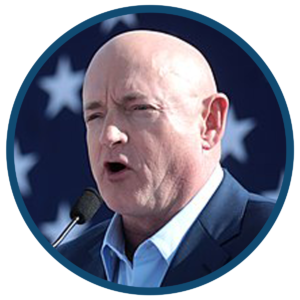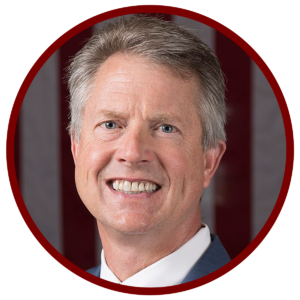

Except for a handful of races that have yet to be called, the tumultuous 2020 election has come to an end. This year’s election brought many firsts— the largest voter turnout ever with nearly 160 million ballots cast, the highest election spending at more than $14 billion, and, as we all know, the longest America has waited for swing states to be called in a modern presidential election.
The 2020 election also saw support for veteran voices in Congress remain strong. In the Senate, 19 veterans will serve in the next session, while in the House, more than 70 veterans have won re-election alongside at least 13 new incoming freshmen— total numbers that are on par with prior election cycles.
Among the new crop of veteran lawmakers coming to Capitol Hill, there are many who call for stronger American leadership around the world. Because of their military backgrounds, they understand that America is safer and stronger when we devote resources to our country’s non-military tools of diplomacy and development, as well as our defense. As General James Mattis famously said as Commander of the U.S. Central Command, “If you don’t fund the State Department fully, then I need to buy more ammunition ultimately.”
And in the context of the ongoing COVID-19 pandemic, these civilian tools of national security become even more important in protecting our country. As Admiral James Stavridis (Ret.) and General Anthony Zinni (Ret.) said earlier this year, “No matter how successful we are in fighting the threat of the COVID-19 pandemic at home, we will never stop it unless we are also fighting it around the world.”
This Veterans Day, we salute all lawmakers who have served in our nation’s military and continue to serve as members of Congress. We’re also shining a spotlight on several incoming veteran-turned lawmakers and their foreign policy views:
 A first-time office holder, former U.S. Navy pilot, Gulf War combat veteran, and NASA astronaut, Senator-elect Mark Kelly is no stranger to national security and foreign policy. He has called for the United States to play a robust role on the world stage, pledging that he will work to ensure the United States “remains a global leader and that our allies know that they can continue to trust us.” He says his foreign policy perspective is rooted in his military deployments to the Arabian Gulf, which he has described as giving him “valuable” insights into foreign policy decisions, “particularly in the Middle East.”
A first-time office holder, former U.S. Navy pilot, Gulf War combat veteran, and NASA astronaut, Senator-elect Mark Kelly is no stranger to national security and foreign policy. He has called for the United States to play a robust role on the world stage, pledging that he will work to ensure the United States “remains a global leader and that our allies know that they can continue to trust us.” He says his foreign policy perspective is rooted in his military deployments to the Arabian Gulf, which he has described as giving him “valuable” insights into foreign policy decisions, “particularly in the Middle East.”
 From 1984 to 1992, Senator-elect Roger Marshall served in the U.S. Army Reserves, where he trained mobile hospital support units. A Kansas native, military veteran, physician, and two-term member of the U.S. House of Representatives, Senator-elect Marshall has called America’s national security and defense a “core function” of government. During his tenure in the House, he supported a number of international development and diplomacy programs including co-sponsoring the Reach Every Mother and Child Act, the United States-Israel Security Assistance Authorization Act, and supported the Global Fragility and Violence Reduction Act. A top priority for Marshall has been to address global food insecurity, saying that food grown in Kansas can “have life-changing impact on people across the globe.” Marshall has also said that greater member contributions have made NATO stronger and voted for the NATO Support Act, which prohibited using funds to withdraw the United States from NATO.
From 1984 to 1992, Senator-elect Roger Marshall served in the U.S. Army Reserves, where he trained mobile hospital support units. A Kansas native, military veteran, physician, and two-term member of the U.S. House of Representatives, Senator-elect Marshall has called America’s national security and defense a “core function” of government. During his tenure in the House, he supported a number of international development and diplomacy programs including co-sponsoring the Reach Every Mother and Child Act, the United States-Israel Security Assistance Authorization Act, and supported the Global Fragility and Violence Reduction Act. A top priority for Marshall has been to address global food insecurity, saying that food grown in Kansas can “have life-changing impact on people across the globe.” Marshall has also said that greater member contributions have made NATO stronger and voted for the NATO Support Act, which prohibited using funds to withdraw the United States from NATO.
 Representative-elect Peter Meijer will take the seat of Libertarian Justin Amash when the 117th Congress convenes on January 3, 2021. He served in the U.S Army Reserves for eight years and deployed to Iraq in 2010 to help conduct intelligence operations. After graduating from Columbia University, he worked as a conflict analyst for a humanitarian organization in southern Afghanistan where he helped workers safely deliver assistance to Afghan people. On the campaign trail, Meijer stated he will fight to stop the endless wars. “These wars are not only destructive and wasteful, but also undermine our national security and diminish our standing in the world,” he said on his campaign website. He’s also pledged to support military allies, like Israel, as well as to “ensur[e] our intelligence community is informing policy makers to deal with strategic issues to prevent the wars of tomorrow rather than being bogged down in the wars of today.”
Representative-elect Peter Meijer will take the seat of Libertarian Justin Amash when the 117th Congress convenes on January 3, 2021. He served in the U.S Army Reserves for eight years and deployed to Iraq in 2010 to help conduct intelligence operations. After graduating from Columbia University, he worked as a conflict analyst for a humanitarian organization in southern Afghanistan where he helped workers safely deliver assistance to Afghan people. On the campaign trail, Meijer stated he will fight to stop the endless wars. “These wars are not only destructive and wasteful, but also undermine our national security and diminish our standing in the world,” he said on his campaign website. He’s also pledged to support military allies, like Israel, as well as to “ensur[e] our intelligence community is informing policy makers to deal with strategic issues to prevent the wars of tomorrow rather than being bogged down in the wars of today.”
For further insights into the 2020 election, including more profiles of incoming lawmakers, check out USGLC’s Election Analysis.
Notifications